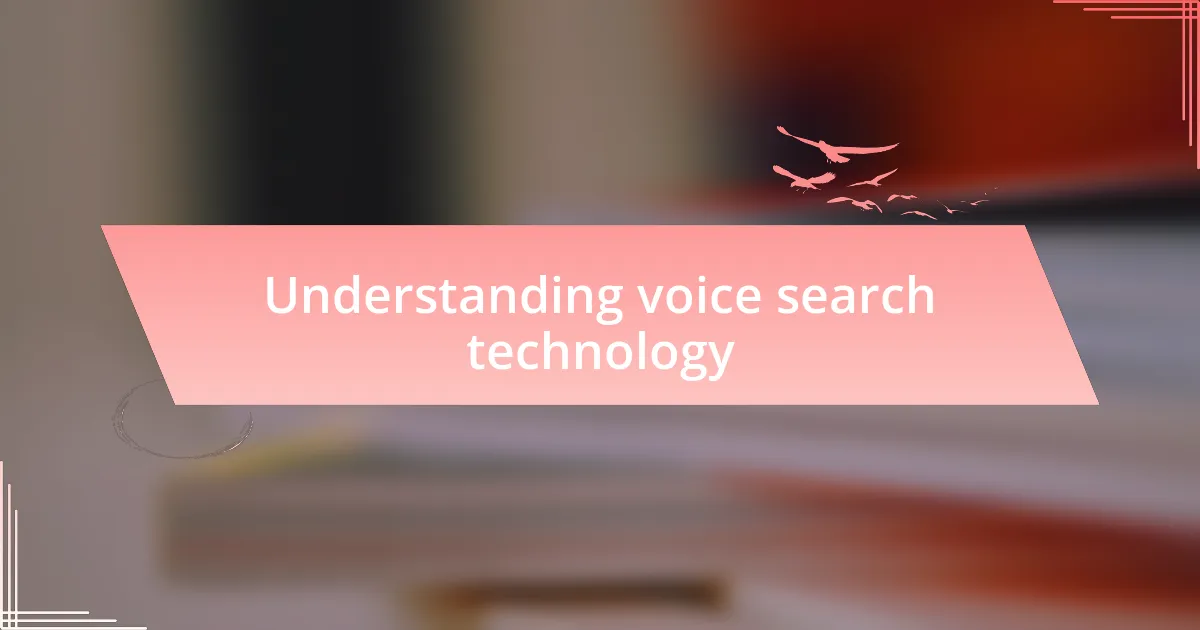Key takeaways:
- Voice search technology utilizes natural language processing to improve interaction by understanding human speech.
- Challenges include difficulties with accents and phrasing, resulting in irrelevant search results and frustration for users.
- The evolution of voice search may lead to a shift in content consumption, favoring audio over traditional reading.
- Despite advancements, there is still room for improvement in voice recognition accuracy to enhance user experience.

Understanding voice search technology
Voice search technology has transformed how we interact with digital content, and I’ve experienced this shift firsthand. I remember the first time I used voice search; I found myself asking my device questions as if I were talking to a friend. It was surprisingly satisfying to receive immediate answers and discover new insights without having to type a single word.
The essence of voice search lies in natural language processing, which allows devices to understand and interpret human speech. This technology continuously evolves, enabling more conversational interactions. Have you ever noticed how voice search can adapt to your speech patterns? It’s fascinating how it learns from our queries, creating a personalized experience that feels more intuitive.
The implications for content creation are significant, especially in the realm of e-reading. I often consider how voice search affects the way I consume information. Will people prefer listening to articles instead of reading them? As I navigate this landscape, I see a future where audio content becomes a staple, reshaping our reading habits and preferences.

Personal challenges with voice search
Voice search has not been without its challenges for me. Initially, I found it frustrating when my device didn’t understand my accents or the way I phrased my questions. It would often return irrelevant results, leaving me wondering whether the technology was meant to save time or just complicate things further.
There was a moment when I tried to find a specific e-book using voice search, thinking I could breeze through it. Instead, I ended up repeating my request multiple times, each attempt met with a series of mismatched responses. I even questioned whether I was talking to my device or just barking commands into the void. This experience made me realize that while voice search is innovative, it still requires improvement in understanding users.
The accuracy of voice recognition can often disrupt the flow of my reading experience. On occasions when I want to quickly pull up a summary or a review to enhance my understanding, I feel the tension building when every attempt feels like a guessing game. Have you ever felt that frustration when technology doesn’t cooperate? It’s moments like these that remind me that even with all the advancements, there’s still a long way to go before it truly complements our natural way of interacting with content.